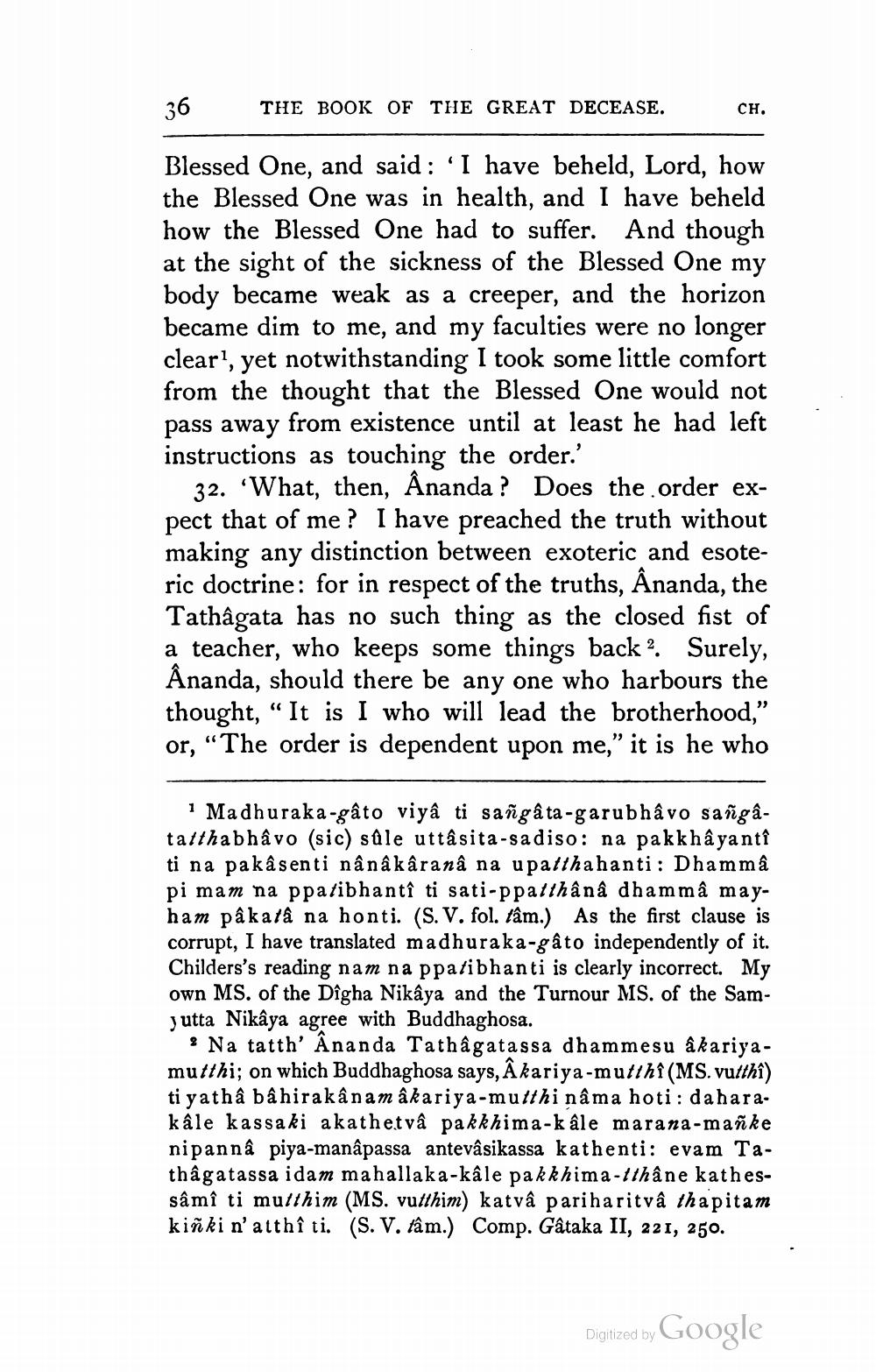________________
36
THE BOOK OF THE GREAT DECEASE.
CH.
Blessed One, and said: 'I have beheld, Lord, how the Blessed One was in health, and I have beheld how the Blessed One had to suffer. And though at the sight of the sickness of the Blessed One my body became weak as a creeper, and the horizon became dim to me, and my faculties were no longer clear1, yet notwithstanding I took some little comfort from the thought that the Blessed One would not pass away from existence until at least he had left instructions as touching the order.'
32. 'What, then, Ânanda? Does the order expect that of me? I have preached the truth without making any distinction between exoteric and esoteric doctrine: for in respect of the truths, Ânanda, the Tathagata has no such thing as the closed fist of a teacher, who keeps some things back 2. Surely, Ânanda, should there be any one who harbours the thought, "It is I who will lead the brotherhood," or, "The order is dependent upon me," it is he who
1 Madhuraka-gâto viyâ ti sañgâta-garubhâvo sangâtatthabhavo (sic) sûle uttâsita-sadiso: na pakkhâyantî ti na pakâsenti nânâkâranâ na upatthahanti: Dhammâ pi mam na ppatibhantî ti sati-ppatthânâ dhammâ mayham pâkatâ na honti. (S. V. fol. tâm.) As the first clause is corrupt, I have translated madhuraka-gâto independently of it. Childers's reading nam na ppatibhanti is clearly incorrect. My own MS. of the Dîgha Nikâya and the Turnour MS. of the Samyutta Nikâya agree with Buddhaghosa.
Na tatth' Ânanda Tathagatassa dhammesu âkariyamutthi; on which Buddhaghosa says, Â kariya-mutthî (MS. vutthî) ti yathâ bâhirakânam âkariya-mutthi nâma hoti: daharakale kassaki akathetvâ pakkhima-k âle marana-mañke nipannâ piya-manâpassa antevâsikassa kathenti: evam Tathâgatassa idam mahallaka-kâle pakkhima-tthâne kathessâmî ti mutthim (MS. vutthim) katvâ pariharitvâ thapitam kiñki n’atthi ti. (S.V. tâm.) Comp. Gâtaka II, 221, 250.
Digitized by
Google




